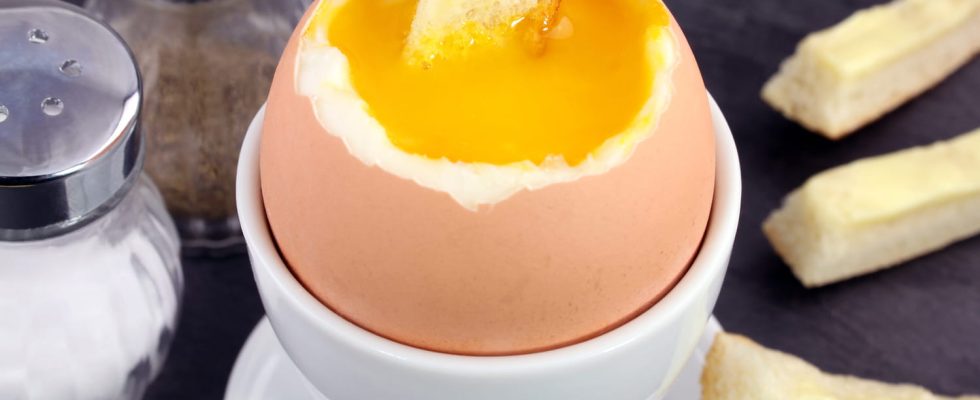For perfectly cooked soft-boiled eggs, with a runny yolk and a well-cooked white, this action before cooking makes the difference.
Boiled eggs are a timeless classic for breakfast, lunch or brunch. However, many people sometimes find themselves disappointed by getting inconsistent results, ranging from an overcooked yolk, to a still runny white, or even worse, cracked eggs in boiling water. However, you are careful to put the egg delicately in your pan, but nothing helps, the shell almost systematically cracks. Don’t worry, you have nothing to do with it, it’s a normal phenomenon due to the air pocket located at the end of the egg. Fortunately, there is a small pre-cooking action that can make all the difference in ensuring your boiled eggs are a success every time.
The secret lies in the temperature of the eggs, but also in a little-known trick that changes everything. The key to perfect boiled eggs is to start with room temperature eggs. It may seem trivial, but the initial temperature of the eggs plays a crucial role in cooking success. When eggs are at room temperature, they require less time to reach the desired doneness once immersed in boiling water. This means that the yolk will remain creamy, the white will be cooked through, and the risk of cracking of the shells will be greatly reduced.
Then, to prevent the shell from puncturing, you will need sewing equipment, namely a needle. Here are the steps to make your boiled eggs successful:
- Take the eggs out of the refrigerator in advance, at least 15-20 minutes before plunging them into boiling water. This will allow the eggs to gradually reach room temperature.
- Meanwhile, prepare a pot of water large enough to accommodate all the eggs you want to cook.
- Next, take a sewing needle. Hold your egg upright and poke a small hole in the bottom of the egg (the larger side). This will allow air to escape and prevent the shell from cracking. Don’t worry, the hole is too small for water to enter the shell.
- When the water boils, reduce the heat to maintain a light boil. Using a spoon, gently lower the eggs into the water. Make sure you don’t drop them suddenly to avoid any cracking of the shell.
- Check the cooking time. For soft-boiled eggs with a runny yolk, let them cook for about 3 minutes. For a creamier yolk, extend the cooking time by 1 minute.
- Once cooking is complete, immediately transfer the eggs to cold water to stop the cooking process.
All you have to do is try… and don’t forget the famous mouillettes to accompany these perfect boiled eggs!
